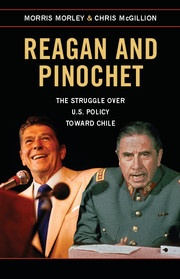7 - Return to the Fold
Published online by Cambridge University Press: 05 February 2015
Summary
The presidency of George H. Bush from January 1989 to January 1993 coincided with the collapse of the Soviet Union, the disintegration of its Eastern European bloc, and the emergence of a unipolar world where the United States was the only superpower. As momentous as these changes were, they did not result in a fundamental reevaluation of U.S. foreign policy goals. In appearance and style, the Bush administration initially leaned away from the emotionally charged and ideologically driven policy of the Reagan years to a more prudent and pragmatic approach in dealing with the Third World in particular. But Washington’s new enthusiasm for solving outstanding problems through diplomacy rather than confrontation was, as events were to show, conditional and largely a function of the need to adapt to a new global reality that denied U.S. policy makers compelling national security arguments to justify interventionist policies and created opportunities for political settlements to a number of regional conflicts.
In his inaugural address, Bush embraced his predecessor’s rhetoric about the need to support democracy and free market economies. The “day of the dictator is over,” the new President declared, and the totalitarian era was passing: “great nations of the world are moving toward democracy [and] freedom [and] toward free markets through the door to prosperity.” For all that, the Bush White House would continue to emphasize the necessity of American global leadership, in the process subordinating the ambitions of competitor allies in Europe and Japan to Washington’s interests. “American leadership,” Bush insisted, meant “economic, political, and military” leadership and in all three respects embodied “a hard-nosed sense of American self-interest.” This dictated the maintenance of large, Cold War–sized military and intelligence budgets, now justified on the basis of the need to maintain worldwide stability (rather than the containment of communism) and to deal with new and continuing threats posed by rogue states, terrorism, and international drug trafficking. In the Third World, the collapse of the Soviet bloc gave an enormous boost to American power, first by eliminating any significant counterweight to U.S. objectives or power projections, and second by increasing the costs to those regimes seeking to pursue alternative economic and political strategies now more vulnerable to hostile initiatives by the dominant imperial state.
- Type
- Chapter
- Information
- Reagan and PinochetThe Struggle over US Policy toward Chile, pp. 281 - 311Publisher: Cambridge University PressPrint publication year: 2015

